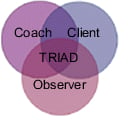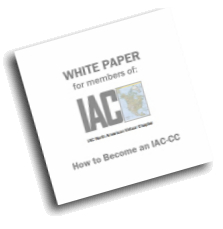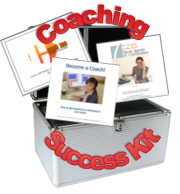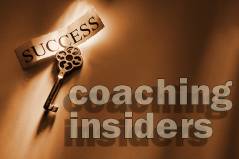 You've probably heard that group coaching is a must-have for your coaching business, but you may never have thought about becoming a Certified Group Coach.
You've probably heard that group coaching is a must-have for your coaching business, but you may never have thought about becoming a Certified Group Coach.
In my opinion, you don't have to offer group coaching, but if you're ready to branch out from just one-to-one coaching clients, group coaching is the next logical place to go. Yes, information products are great, but dollar for dollar and hour for hour, you'll make more from group coaching, especially if you don't already have a mailing list of thousands.
There are probably hundreds of good reasons to add group coaching to your business, but I've highlighted ten from my own experience below, just to give you an idea.
Group coaching is an advanced skill set, combining many of the skills of one-to-one coaching with group facilitation and more. I thought it would be easy for me, because I was a very good one-to-one coach with 15 years of experience as a college professor. In the beginning, it was a lot harder than I thought! But if you think group coaching is something you want to learn more about and if you'd like to become a Certified Group Coach, skip to the bottom of this blog post and check out an upcoming opportunity.
Top Ten Reasons to Become a Certified Group Coach:
1. Make more money
In 2003, my first coaching groups were focused on a hot new certification from the IAC, which used Thomas Leonard's Proficiencies. I was teaching the Proficiencies at the time, so offering a mentor group to help coaches master them, was a natural for me. I filled my first group up with 10 people and had to open a second one quickly, because even more people wanted to join. It kicked up my income very nicely, even though the groups themselves were a bargain to join.
2. Charge less to your clients
As I said, I charged bargain fees to my clients for those first groups, only $75 per month, per person. But with 20 new clients, that was $1,500 more income per month and about $250 per contact hour. Nice pay ~ and very affordable for my clients! Actually, you can charge much more for group coaching, depending on your market. Generally, groups meet for three to six hours per month, with group sizes ranging from 3 to 10 clients. And most coaching groups cost $150 to $350 per month, per person. Do the math. Group coaching saves money for the client and makes more money for you.
3. Grow your fan base faster
I mentioned your email marketing list earlier, because your True Fans are a vitally important element in your coaching success. Building that list with just one-to-one clients can be murder. Coaching groups with 3 to 10 members each, will help you build that list 3 to 10 times faster.
It's an incredible amount of work to design ebooks, white papers and other information products to attract new people to your list, but coaching is customized in the moment, so there is far less upfront work, while far more value is delivered - and at a higher price that clients gladly pay. People simply view in-person, customized service as more valuable than pre-designed, canned content - because it's far more effective.
Contrary to what you may have heard, coaching clients don't need to buy cheap products from you before they hire you to be their coach. For most of them, you being a credible coach who is in the right place at the right time, with an appealing specialty or niche, is all it takes.
4. Give more value to your clients
Here's where it gets interesting: your group clients will actually get a lot more value from each other than they would from you alone, so a group of ten will multiply value by ten. Why? Groups are organized around commonalities between the members of the group and their mutual goals. So guess what? They have experiences, know-how and resources that you don't have and they tend to share them generously - so long as you know how to set up a bonded synchronous group, which is one of those advanced skill sets I mentioned.
5. Upsell to one-to-one coaching
It's natural to balance group coaching with one-to-one coaching, because sometimes your clients need you to drill down deeper with an issue than you have time for during the group meeting. This is an important value add for your clients, which gives them the benefits of one-to-one coaching plus group coaching. You can easily add an option for each group member to have one or two individual coaching sessions per month with you and of course, you can charge extra for that.
6. Increase your credibility
As you become known for certain specialties or niches in your coaching groups, you'll become known for those specialties and niches in all your coaching. Once I offered the Get Certified Coaching Groups, which I mentioned above, I became known as a mentor coach who helps coaches get certified. This became an important part of my one-to-one coaching practice for several years, as well - until I leveraged my reputation and what I had learned to start School of Coaching Mastery. You see, over the years, I became an expert on this type of coaching and potential clients saw me as someone they wanted to work with on this. In other words, I developed the credibility to do well with this niche and specialty.
Back then, there was very little training in group coaching, so I had to teach myself and it took years of trial and error. There were no group coaching certifications, but if there had been, I'd have gotten one. Credibility is everything when you're in business for yourself.
7. Decrease your work hours
You can work day and night on a membership site, on information products and live events - or you can just coach. Group coaching pays you even more per hour than one-to-one coaching, so if a short work week is a goal for you, then group coaching needs to be a specialty of yours.
8. Add additional income streams
As you organize your coaching groups, you'll find yourself writing more, because it'll be an easy way to communicate with groups. The nice thing about that is that once you've written something, it can be re-purposed.
Remember how I mentioned that it's a lot of work creating information products? If you've already created something for a high-paying coaching group, you've been well-paid for your time. If you take that written piece and sell it as a free-standing product at a lower price, whatever you make from it will be profit. That's the easier, more profitable way to do it.
Also, working with groups of people will give you a good idea what kinds of solutions they're looking for. That may spark great ideas when you're ready to do live events or create products.
9. Upsell from information products
Remember how I said that clients don't have to try inexpensive products from you in order to be willing to hire you to coach them? Well that's true. And sometimes you'll attract people who were just looking for that inexpensive ebook that tells them how to do something, but upon reading it they'll realize what they really want is a coach. If you have both group coaching and one-to-one coaching options, you'll be able to reach more people in exactly the format they want.
10. Learn where your next opportunities are
Just as I mentioned in #8 above, working intensively with clients will give you ideas about what they really want and need next - even when they, themselves, can't tell you what that is. So group coaching is perhaps the most valuable form of R&D possible, because you get to know your coaching clients inside and out. For me, that took me from coach, to mentor coach, to founding my own coaching school. I knew what my clients wanted and needed because I had gotten to know them so well.
Where will group coaching take you and your business? Where ever it is, you'll get there much faster if you don't have to learn it all from the ground up. That's why we're offering the 8-hour Master Group Coaching Success module, which ends with a Group Coaching Certificate. You'll learn how to organize, market and facilitate successful coaching groups in these live tele-webinars, which come with written materials and more.
Want to become a Certified Group Coach? Take Master Group Coaching Success, described above, and then join the upcoming Certified Group Coach Mentor Group. I'll personally mentor you as you learn to lead your own groups and get started with your very first group. You must attend both the learning module and the mentor group in order to become a Certified Group Coach.





 In honor of the ICF's International Coaching Week, I'm sharing the Top Ten Lessons I learned from
In honor of the ICF's International Coaching Week, I'm sharing the Top Ten Lessons I learned from 
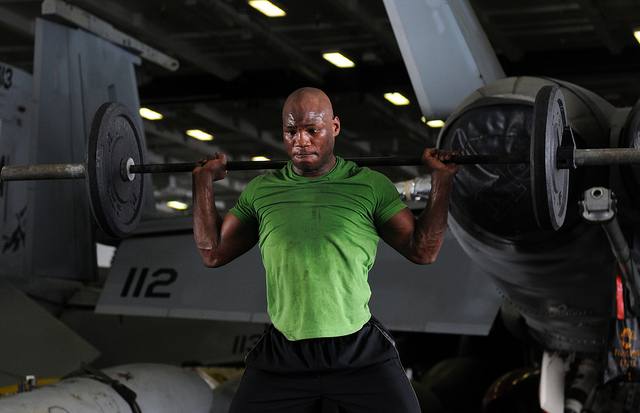

 You've probably heard that group coaching is a must-have for your coaching business, but you may never have thought about
You've probably heard that group coaching is a must-have for your coaching business, but you may never have thought about 
